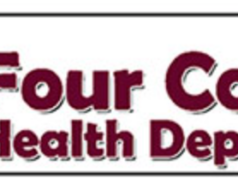Press Release: From Four Corners Health Department
Title: Older Driver Safety Awareness Week
December 2nd – 6th is Older Driver Safety Awareness Week. If you are not an older driver yourself, you likely know and care about one, such as a parent, grandparent, friend, or neighbor. Between 2013 and 2022, the U.S. population of people 65 and older rose by 30%, and in 2022 the number of people 65 and older killed in traffic crashes made up 19% of all traffic deaths (NHTSA).
Being able to drive is vital to our well-being. It gets us to where we need to go such as medical care, the grocery store, and community events. Aging has a big impact on everyday driving.
Medical conditions and medications can make a difference. Some medical conditions can make it tricky to drive. Older adults can become more forgetful and may forget the routes they often drive. Heavy traffic, as well as signs and signals, can be overwhelming. Prescription and over-the-counter medicines can cause impairment. This may be a medicine being taken continuously or something temporary, such as cough syrup.
Technology impacts driving, whether good or bad. Cars can do a lot of things. These features are designed to make our lives easier. If you don’t know how to use them, it can make driving harder. If your car has a feature you’d like to use, make sure you know how to use it before you are on the road. Technology can also help make a vehicle easier to drive, such as swivel seats or pedal extenders. If you need adaptive equipment to make driving easier, make sure you are talking to a qualified mobility dealer for training on how to use these products.
Buckle up every trip, every time. Whether driving or riding, buckling up is the most important thing you can do to stay safe, whether it’s 5 or 500 miles.
Stay mobile. Keep and improve your strength to stay independent. Exercise can reduce stress and anxiety and help you sleep better. It can also provide better brain function. You want to be sure you can still reach the steering wheel and driving controls, look over both shoulders and reach to put on your seat belt.
Reaction and reflexes. Make sure you leave more space between your car and the car in front of you. Start breaking earlier when you need to stop. Avoid heavy traffic when you can. If you must drive on a highway with higher speeds, stay in the right-hand lane where traffic moves more slowly.
Don’t skip your eye check-ups. Visit your eye doctor every year. Ask if there are ways to improve your eyesight. If you wear glasses or contacts, be sure your prescription is up to date, and wear them while driving if prescribed. Cut back on driving at night if you have trouble seeing in the dark. Avoid sunrise and sunset when the sun can be directly in your line of vision.
Do not drive distracted. Look only at the road. Reduce hearing distractions such as radios or conversations. Make sure you have all of your settings the way you want them before you drive so you don’t have to set them while you are driving. Do not use your phone while you are driving. Look more than once if you are backing out of a parking space or merging into traffic. Our brains are not designed to do multiple things at once. Instead, your brain is constantly switching between tasks. This attention-switching can slow reaction times and decision-making. When you are driving, there is often not much room for error.
If you are an older driver, make sure you have a plan in place before driving becomes dangerous. Know how to get to appointments and activities. You can use the My Mobility Planning tool to help you make a plan: https://www.cdc.gov/older-adult-drivers/mymobility/index.html. The planning tool is also available in Spanish.
Know how you will get groceries and medications. If you are a caregiver to an older adult, learn how to understand older drivers: https://www.nhtsa.gov/older-drivers/how-understand-and-influence-older-drivers. Help them to make a plan of action and help them follow through when it is time. If you can, help them learn about things they can do to adapt their cars to help them drive better.
For more information on this topic, go to https://www.nhtsa.gov/road-safety/older-drivers (also available in Spanish) or https://dot.nebraska.gov/safety/driving/age. For questions or to learn more, call Four Corners at 402-362-2621 or 877-337-3573 or email us at info@fourcorners.ne.gov. Visit the Four Corners website at https://fourcorners.ne.gov. Follow us on Facebook, Instagram, Twitter, and subscribe to our new YouTube channel @fchealthdept!



































